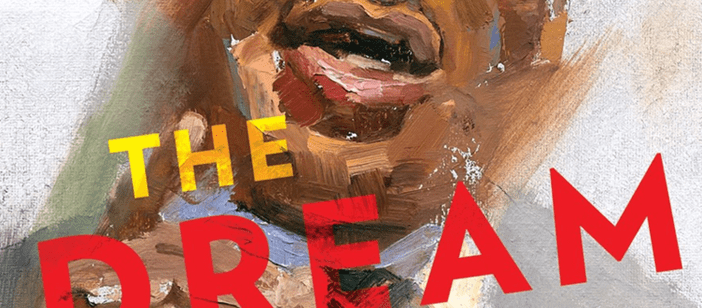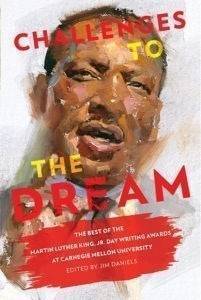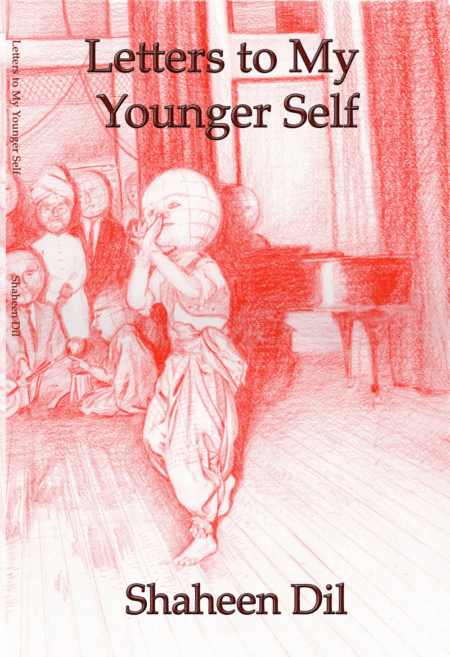Everyday, people across the United States struggle with problems ranging from racial and cultural stereotypes to homophobia and identity questions. For 18 years, Carnegie Mellon University’s Jim Daniels has given Western Pennsylvania students a safe, creative space to express their battles with race and diversity through the Martin Luther King, Jr. Day Writing Awards. A selection of 91 of these prose and poetry pieces have been compiled into a new anthology, Challenges to the Dream: The Best of the Martin Luther King, Jr. Day Writing Awards at Carnegie Mellon University.
“It is consoling beyond words to witness these young writers wrestling with the realities of race, and bringing solid thought and well-wrought language to bear upon that process. This is the mortar that will mend our nation’s spirit. These are the minds and hearts to whom I feel safe entrusting our collective future.” – Tracy K. Smith, Poet Laureate of the United States, Pulitzer Prize Winner
Don’t miss out: There are a number of free readings planned in support of this anthology (details here) and — students — the deadline to submit your work to this year’s awards is Nov. 24th!
“Strange Fruit” by Alexis Payne
You wonder what ‘strange fruit’ tastes like
as you swing ashy legs from the hips of your father’s
reclining chair. when you ask his face
contorts into a shadow, cheeks pressing air
from the edges of his jawbones,
eyes hollowing.
you are watching his hands curve
into fists—red blisters, stitches, hard knuckles pressing into working skin…
and in the place beneath your tongue,
you are imagining the soft flesh of a mango
pulp of an orange
tart bursting body of a strawberry.
when you ask him again, he is silent
and pressing his fingers against the temples
of his head, imagining asphyxiation
suffocation…toes dangling and shadows
in woods.
you are not his daughter here.
here you are Emmet’s sister,
Evers’ daughter, little brown
church girl lifting her skirt
to use the bathroom…
the face of Jesus,
a hollow, jagged shadow.
he is swallowing and searching
for what strange fruit tastes
like in the back of his throat,
like maybe he can recall from his taste buds,
pull it out from the silence
between his lips,
like strange fruit has been caught
between his teeth
or is hiding, resting on his gums.
wherever it is, you decide
that he hasn’t swallowed it yet
and you imagine it sputtering onto the carpet
in a burst of ebony vomit.
years later, when it dries and you’ve grown…
you scrape it up with your nails and you watch
as the black turns to
red,
then white,
then blue.
“some assembly required” by Javier Spivey
my Abuela’s spanish is quiet but loud with intention
it has that perfect comprehension of life with that wariness of death
and it’s thick with the breath of viejo san juan down its neck
best believe it kept my mother in check
cuz Mamí’s spanish is the creation of the new nuyorican nation
the 1970’s formation sung by boleros on each station
tainos knew no lions until these women roared
heard from los calles de cupey to lex and 103rd
my spanish requires assembly
palabra puzzle pieces thwarted by toddler teeth marks on their corners
can’t fit when they’ve been constantly chewed by caucasian mispronunciations
of my name culture and persuasion
ms. ellis in the pre-k
roll call on the first day
ja-vee-air or ha-vee-ay
to shy to speak up
Javier that’s my name
anglicized by twenty-six year old ellis and her disciples
tyrannical tykes with whitewashed pictures books as their bibles
jack was adventurous, phillip was charming
but in ‘01 at 8:05 am my name was too alarming
syllables were stock to exchange in the morning
monikers meant cash for little white boys only
no bit-sized buyers wanted ha-vee or ha-vee-air, too many too exotic
but i woulda gone broke to be a max, tom, or dick
so Abuela and Mamí, i never intended to lose who i was
but i was sick of no one understanding:
perdona me, jota’s like an h, this ain’t no french
cuz i just wanted to uphold the hold on our third generation of american education
and the missing puzzle piece seemed to be assimilation
MIRA, when my accent faded and i waded out of spanglish shallows into the hallowed river of gentrification, leading to the mouth of the melting pot flowing into the ocean birthing our nation,
i realized rita moreno lied. ain’t no small fee to be free in america. there’s been a cost that can’t be paid by any ancestor’s loss, a cost mi gente sees everytime we turn on the tv and are reminded that the only way to make the great america what it used to be is to take any foreign flavoring out of its rice and beans y Mamí y Abuela i know you know that this man ain’t the first to tell us we have to go. it’s not just six year old toms and aged politicians building the partitions between nations and our coexisting visions, so what do i do when my broken spanish is
the last of my ammunition?
permiso
con pacienca y fe help me put it back together
for once i realize our pride, i’ll know no oppressor
“I Am Not Wrong: Wrong is Not My Name” by Elsa Eckenrode
i.
When I cut my hair
my mother asks if I want to be a boy,
as if this new haircut has transformed my entire being,
and imagine this: the day after,
me, hunched over my kitchen table,
hair short and bleach blond,
my body in an XL black shirt, formless,
not angular or curved, she asks,
is this your butch pose?
ii.
How do I tell her I learned a while ago
to hate my body for what others see?
I learned to cover myself up
because when it’s 9 pm and I’m walking home by myself
I am: all skinny jeans and body outlined,
I’m nothing more to the man outside than
some dyke he’d love to see in bed,
but how do I tell him
I am more than just a body?
iii.
What does it matter
if my mom sees me as a butch
and men see me as a fetish
when at the end of the day I’m still thinking
about the first time a guy called me
a faggot for not flirting with him.
Why couldn’t I tell him he was wrong?
I was 14.
Will he ever know how scary
it is to be told you’re unnatural?
iv.
And one night 3 years later, at 17,
my dad’s girlfriend sits me down for girl talk
and asks me why I don’t like men,
but doesn’t she understand
we are so much more than bodies?
Why can’t I tell her she’s wrong?
It’s like I’m 14 again,
numb and speechless, breathless.
Does she know how much
my chest hurts to feel so ungodly?
v.
I try to forget the sinking feeling
but it starts eating me alive
and I tell my mom the next day,
broken down and sobbing in her car,
and my dad promises she isn’t homophobic
but how can he tell me I’m wrong
when he wasn’t there? Why wasn’t he there for me?
How do I tell him how hard it is to feel right
when I’ve spent years learning I was wrong,
but this isn’t who I am, I swear I’m so much more.
I am not wrong: Wrong is not my name.
This excerpt from Challenges to the Dream: The Best of the Martin Luther King, Jr. Day Writing Awards at Carnegie Mellon University is published here courtesy of the publisher. It should not be reprinted without permission.


























